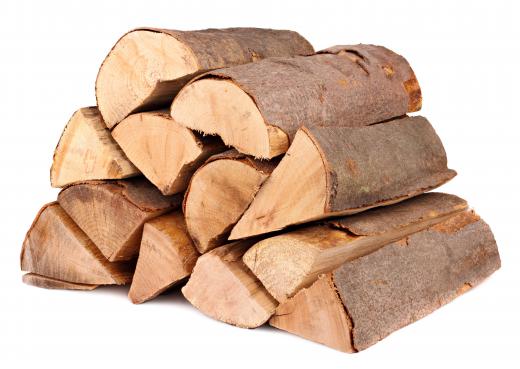Wood fuel is a term used to describe any use of wood as a source of energy. The most common use of this term would generally relate to the use of wood for heating houses, but other uses exist, including things like generators that run on wood chips, and steam engines that rely on burning wood. Wood is considered a form of renewable energy, and it is one of the oldest energy sources in the history of mankind.
People have generally been burning wood and using it to heat their dwellings since the earliest parts of history. In fact, there were many times and places in history where wood was the primary source of energy used to cook food and heat homes. Even now, many people still use wood heating in their homes and many experts suggest that it has some advantages over some other sources of fuel.

When it comes to pollution, many scientists think that wood is potentially superior to oil as a source of fuel. Some experts suggest that increasing the use of wood might be a good way for different countries to reduce their carbon footprint. Some newer types of wood heaters, that often burn wood pellets instead of sticks of firewood, are generally considered highly efficient and they may work very well as a replacement for other heating sources, especially in certain climates.

Some people worry that the use of wood fuel may eventually put too much strain on the forests around the world. Overall, many experts believe that wood fuel is less threatening to the world’s forests than many other activities, including building and farming, but that might change somewhat if there was a greater move towards the use of wood for heating. Most people who suggest an increase in wood heating don’t necessarily see it as a total replacement for other heating sources, but rather as a supplementary measure to slightly change the environmental situation. These people believe that a minor increase of this sort might not necessarily lead to devastating consequences.
One of the main advantages of wood fuel and other bio-fuels over many renewable energy sources is flexibility. This is mostly because bio-fuels can often be easily stockpiled for later use, while solar and wind energy only produce during the right times of day, and battery technology to store power for later is somewhat limited. Wood isn’t necessarily as clean or cheap to produce as some other bio-fuels, but it is immediately usable for a wider number of applications, and is usable at any time, regardless of current weather conditions, as long as there is a decent quantity available.
